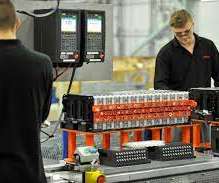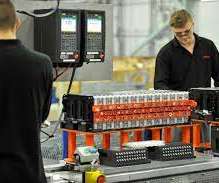PowerCell Sweden receives first marine order for two S3 prototype stacks; on-board H2 production via solar electricity
Green Car Congress
NOVEMBER 4, 2016
PowerCell Sweden AB has received the first marine order for two PowerCell S3 prototype stacks, which Swiss Hydrogen will install on a ship powered by photovoltaics. PowerCells’ partner Swiss Hydrogen is developing energy systems for a range of fuel cell applications. The fuel cells will quadruple autonomy.












Let's personalize your content